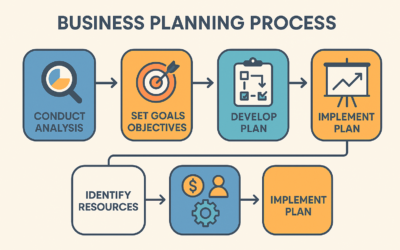Anyone who owns their own business will at some point exit the business. Preparing a business exit strategy allows you to plan for one or more methods of exiting so that you can maximize your business value and walk away with as much money as possible.
Understanding Your Exit Strategy
Any business owner should ideally begin working on an exit strategy from the first day of business, or even earlier. Your exit strategy can influence all your business decisions. Even if it will be many years before you intend to sell your business, what you do every day between now and the day you do sell, can set you up for a smooth exit or make the process far more challenging.
Common exit strategies are:
- Initial public offering (IPO) – where shares in a company are sold to investors. Typically, this includes an investment bank underwriting the sale and arranging for the shares to be listed on one or more stock exchanges
- Strategic acquisitions – having another company buy yours
- Management Buyout – one or more of your senior employees buy the business from you
The strategy that is the best fit for you will depend on factors like how much control or involvement – if any – you want to keep in the business, if you want the business to continue to operate in the same way after you leave, or if you are prepared to see the business focus change.
With strategic acquisitions, you give up all control and responsibilities. IPOs usually supply the biggest payday and prestige. A management buyout can be flexible to fit the needs of both parties. You might continue running the business while being paid in installments or become a part-time employee working as a consultant while the new owner(s) get up to speed with taking control of the business and making the business decisions.
The most important part of an exit strategy is the valuation of the business. You will need a specialist to examine your financial records to figure out a fair value. By knowing your business value and understanding the nature of your industry, you can more easily decide when the right time is to exit.
Key Elements of an Exit Strategy
The following key elements will be an important factor in choosing your most appropriate exit strategy:
- Objective – when you exit, is it all about getting the most money possible or is it about leaving legacy?
- Timeline – the sooner you start planning the more flexible you can be about when to exit. This could be around a certain age, or you might want to exit when you believe your business value is peaking
- Intentions – Do you want to see the business continue the way it is, change in some way, or simply end?
- Market conditions – How is the current supply and demand for the company’s products or services? What is the marketplace demand for businesses like yours? These are factors to consider. Are there a lot of potential buyers or only a few?
Without an exit strategy for your business, gaining the maximum return on your many years in business will become more like a matter of luck. You can’t be sure you will receive the best outcome.
But plan early and always keep your strategy options in mind, and you are highly likely to achieve all your key elements and the outcome you wished.
Seeking out Global Resources Reviews can be a starting point in seeking help to plan your best business exit strategy.

0 Comments